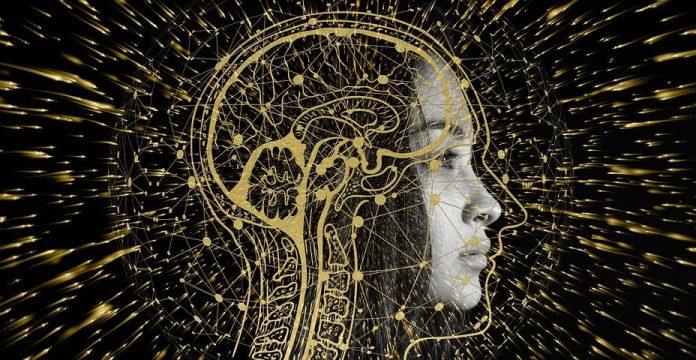AI is the dominant technology today and has been widely adopted across industries. Artificial Intelligence also has its limitations. However, the computing power of traditional computers limits AI.
Quantum computing is a disruptive technology that has the power to affect the whole planet, its economies and industries. Quantum computing can give machine learning and AI a huge processing boost. Artificial Intelligence already has a global impact. As quantum computing is integrated with AI, this influence will grow. Quantum computing can play a major role in the Artificial Intelligence Revolution.
What is Quantum Computing?
Quantum computing is an advanced parallel computation technique that uses the concept of a subatomic particle to replace computers’ simulations and calculations capabilities today.
Quantum computing uses the physical phenomena of superposition, entanglement and interference to calculate calculations beyond the capabilities of even the most advanced computers. Quantum computers can achieve massive computing and processing capacity thanks to quantum physics.
The Relationship between Quantum Computing and AI
Quantum computing is a powerful tool that can help solve some of AI’s most difficult problems. Many of the most promising AI approaches, including deep learning and reinforcement, require large neural networks to be trained on massive amounts of data. These computations are time-consuming and could impact AI development if they were accelerated.
Quantum computing has the potential to help in many ways. It could accelerate the training of neural networks, allowing AI to learn more quickly. It can also increase the accuracy of machine-learning algorithms by allowing them to search through large datasets more efficiently.
In many AI applications, the goal is to find the best solution for a problem. For example, they are finding the optimal route for a self-driving car or the most effective move in a chess game. Solving these problems is difficult, especially when many possible solutions exist. Quantum computing can help Artificial intelligence professionals make better real-time decisions by quickly searching for solutions.
Applications of Quantum Computing & AI
1. Quickly Solve Complex Problems
The complexity and size of data sets are increasing faster than the capabilities of our computers, placing significant pressure on computing infrastructure. Quantum computing will solve problems that today’s computers cannot handle in seconds.
Quantum Supremacy the ability of a Quantum Computer would be able to perform computations that normally take over 10,000 years. It would take only 200 seconds. It is important to translate real-world challenges into quantum languages.
2. Building Better Models
As the amount of data generated in the industry increases exponentially, companies break their links to traditional computer technology. Today’s businesses demand complex models to analyze even the most complex situations.
The healthcare industry is responsible for around 30% of all data generated today. By 2025, the compound annual growth rate for data in healthcare will reach 36%. This is 6% faster than manufacturing, 10% quicker than financial services and 11% more than eCommerce and logistics. Quantum technology may improve illness treatment, reduce the risk of financial collapse and enhance logistics.
3. Combat Fraud Detection
Fraud detection will be improved and enhanced by applying AI skills and quantum computing in banking and finance. Quantum computers can train models to recognize patterns that are hard to detect using traditional equipment. Algorithm improvements will also help the machines handle a large amount of data.
Quantum Computing and Artificial Intelligence: The Positive Impact
1. Quantum computers can process data faster than conventional computers. AI systems can learn and improve more quickly. Quantum entanglement may allow algorithms to exploit correlations among variables better.
2. Quantum computing can solve complex optimization problems, which traditional computers cannot. This allows AI algorithms to run more efficiently. Quantum computing is not bound by classical physics, so it can be used to create artificial intelligence that is more intelligent and powerful than ever before.
3. With quantum computers, AI systems will quickly learn and better prepare for real-life situations through a strong simulation atmosphere. Quantum computers do not forget things as catastrophically as classical neural networks. Thus, it can learn and retain new information better without losing the old.
Why is Quantum Computing the Future of AI?
In classical computing, bits can be either zero or one. However, a quantum bit can be one and zero in quantum computing. This opens up new possibilities in computing power.
Quantum computers can solve problems faster than traditional computers because they can test multiple solutions simultaneously. The limitations of classical computers do not limit quantum computers and can therefore solve previously impossible problems.
Quantum computing is the ideal candidate to power artificial intelligence. AI systems need enormous computing power to process a vast amount of data.
Read more: The Breakthrough of Quantum Computing with Artificial Intelligence
Wrapping up
Quantum computing is gaining momentum in a variety of fields. There needs to be more discussion on how this technology may impact artificial intelligence. Quantum computers can solve decoding issues much faster than traditional computers. They can also model large systems and molecules. However, quantum computing will become more widely available as it becomes easier. It is expected to be important in artificial intelligence development and future applications. They can also handle large amounts of data, which is crucial for training artificial intelligence models.
